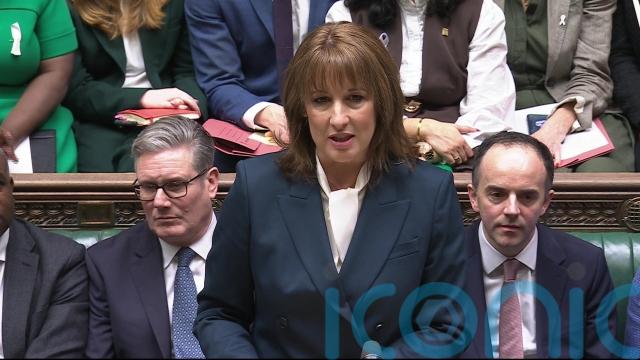
Chancellor of the Exchequer Rachel Reeves stood outside Downing Street on Wednesday with the iconic red box before outlining key budget changes in the House of Commons.
While many of us were tuned into her plans to battle the downgrade in forecast economic growth, we want to know what these changes actually mean for our pensions.
We spoke with Lily Megson-Harvey, policy director at My Pension Expert, who broke down the pension-related announcements, explained who may be affected, and outlined what actions savers should consider now.

What are the main changes in the budget concerning pensions?
“The main announcement from the budget concerning pension was her announcement regarding the changes to salary sacrifice,” says Megson-Harvey. “She announced that there will be a £2,000 annual cap on the salary sacrifice limit that will be brought in by 2029.

“So, anyone who contributes over that £2,000 cap within a salary sacrifice scheme will face national insurance charges, but if you are auto-enrolled and you’re just maintaining the usual contributions, it won’t be taxed.”
There was previously no cap to this.
“Currently, for every extra amount employees and employers top up their pensions through the salary sacrifice scheme, these payments are ultimately exempt from National Insurance,” explains Megson-Harvey. “So, people could, in theory, top up as much as they wanted.”
Who will be impacted?

“While it won’t affect the people who never wanted to sacrifice part of their salary for their pension, the problem is that it will disincentivise people who do want to and are able to sacrifice an element of their salary to pay a bit more into their pension,” says Megson-Harvey.
The policy director thinks it will impact different people across different stages of their careers.
“It could disincentivise younger people if they feel they are able to sacrifice part of their salary to pay into their pension and also even older members of the workforce who might ultimately think there’s no point paying a little bit more into my pension because they want to avoid the tax,” says Megson-Harvey. “So, I think it will probably affect a wide range of people across different stages of their careers and overall could have a negative impact.”
What are the potential risks/pitfalls of this changes?
“Unfortunately, it’s cutting what could be a really useful mechanism to help people and incentivise people to actually save more for their future financial goals,” says Megson-Harvey. “This just means that employers will be less incentivised to provide a more generous salary sacrifice scheme, and employees will be even less incentivised to take advantage of a salary sacrifice scheme, because anything over that £2,000 limit will face additional taxes, which they haven’t had to worry about before.
“By introducing these changes, but having no clear action to actually strengthen saver confidence by providing the support or advice to help people understand exactly how these changes could impact their future finance, the government might just be missing a long-term vision for pensions here.”
What advice would you give people following this announcement?

“Don’t make any snap decisions if you’re feeling concerned, and remember that there is support available to you,” advises Megson-Harvey. “The most important thing is to seek financial advice if possible because then you’ll have a tailored recommendation that suits not just your current circumstances, but also helps you to achieve your future goals. There are other avenues to consider such as investments options like ISAs, for example.”
However, Megson-Harvey stresses the importance of getting advice from reputable sources.
“When it comes to guidance and information, it’s always best to start on really respected websites, like Pension Wise, for example,” recommends Megson-Harvey. “It’s a government website that provides really clear, concise information, and is a really great starting point to help people to understand what the different options that are available to them and what might work for them.”
She also recommends checking credentials on the Financial Conduct Authority’s (FCA) website.
“The FCA has a register where you’ll be able to find contact details of financial advisors that are regulated by the FCA,” says Megson-Harvey. “You’ll be able to find an advisor that’s right for you, and you can get advice with the confidence of knowing that you’ve got those protections in place.
“Getting that financial advice will give people a lot of confidence in understanding, firstly what these changes mean for them, but also the actions that they can take to really strengthen their financial future going forward.”
Subscribe or register today to discover more from DonegalLive.ie
Buy the e-paper of the Donegal Democrat, Donegal People's Press, Donegal Post and Inish Times here for instant access to Donegal's premier news titles.
Keep up with the latest news from Donegal with our daily newsletter featuring the most important stories of the day delivered to your inbox every evening at 5pm.